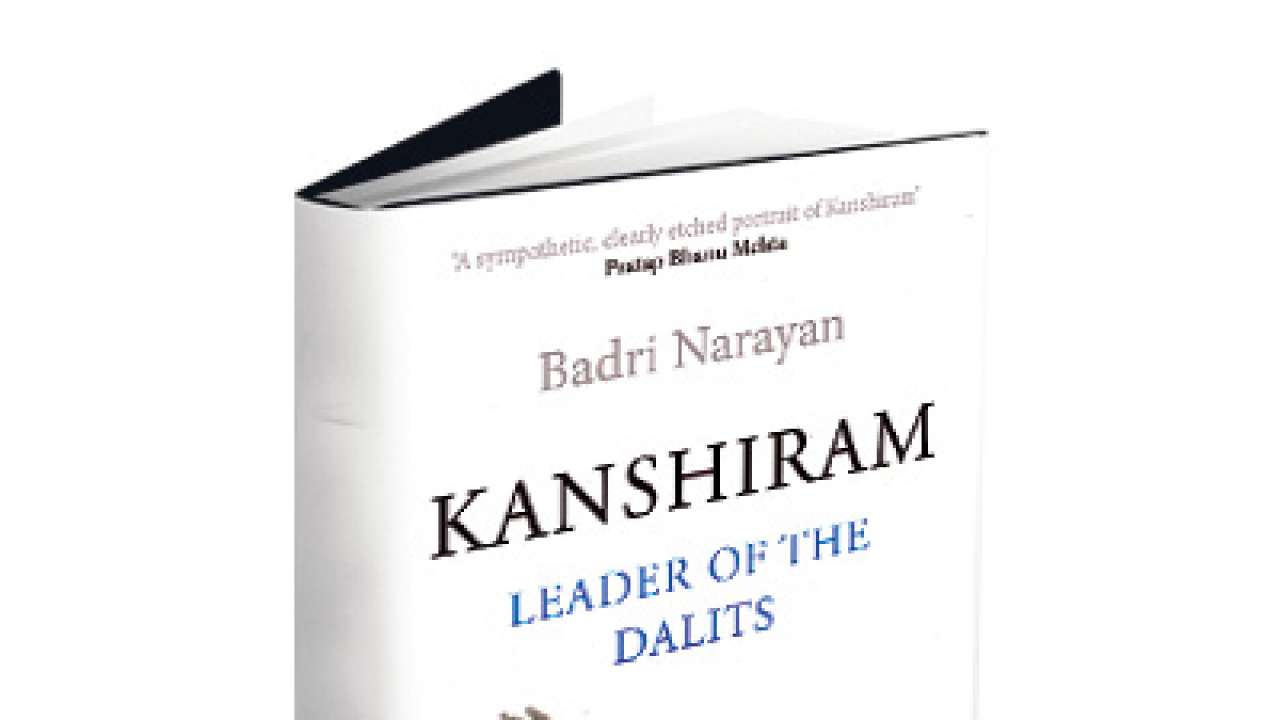
Book: Kanshiram: Leader of the Dalits
Author: Badri Narayan
Publisher: Penguin
Pages: 288
Price: Rs 499
Political commentary is a genre that seems to be lagging in India. Though veteran journalists have written memoirs giving a ringside view of the politics of their time, many gaps remain in the narrative of contemporary events.
Kanshiram: Leader of the Dalits, by Badri Narayan, a professor at the GB Pant Social Science Institute, Allahabad, fills a crucial vacuum by contributing to the understanding of a personality important to both Dalits and mainstream politics. Kanshiram, the Bahujan Samaj Party (BSP) founder, brought about a paradigm shift by chipping away at society's feudal foundations to give marginalised communities a greater political voice.
The Neo Buddhist leaders who dominate Dalit politics in Maharashtra – the erstwhile Mahars – never reached out to fellow Dalits like the Matangs and Chamars, thus weakening the Dalit voice in mainstream politics in the state. In contrast, Kanshiram cobbled together a diverse yet powerful socio-political coalition of Dalit and several other downtrodden castes. Moreover, unlike leaders of the Buddhist-dominated Republican Party of India (RPI), who have not widened their constituency among other marginalised sections and prefer to ride piggyback on the Congress-NCP and lately the Shiv Sena and BJP, Kanshiram allied with the BJP on his own terms, emerging stronger each time.
The book traces the origins of the non-Brahmin movement going back to the Bhakti saints and more recently, Mahatma Jyotiba Phule who took on Brahmanic orthodoxy and caste discrimination. It also refers to the almost forgotten "Dalit uprisings" like the Ad-Dharm (Punjab), Namasudra (Bengal) and Adi-Dravida (Andhra Pradesh) movements. Incidentally, Phule began his epoch-making work in Pune, a citadel of orthodox Brahmins; Kanshiram too cut his political teeth in the city later as a central government employee. The book traces his humble origins in the hinterlands of Punjab where he was born in a Ramdasiya Sikh family (erstwhile Chamars) and grew up experiencing discrimination.
The turning point came when Dinabhana, a class IV employee at the Explosives Research & Development Laboratory in Pune and a colleague of Kanshiram, who worked there as a research assistant, was fired for protesting against the scrapping of holidays on Buddha Jayanti and Ambedkar Jayanti. Kanshiram successfully followed up the case and ensured Dinabhana's reinstatement. Ambedkar's The Annihilation of Caste had an electrifying effect on him, and soon he waded into socio-political activism, founding the SC/ST/OBC Minorities Communities Employees Association in 1971 and later The All India Backward (SC, ST, OBC) And Minorities Communities Employees Federation to organise educated and employed Dalits. This eventually culminated in the formation of the Dalit Soshit Samaj Sangharsh Samiti in 1981, the platform he used to contest the Haryana assembly polls a year later. In 1984 it morphed into the BSP.
Kanshiram knew the RPI's limitations and being combative, he realised the need for non-Brahmin castes to be consolidated under a larger "Bahujan" identity. He also stopped working in 1964, cut off all ties with his family, dedicating himself to politics. His lifestyle was austere: he often went hungry and wore second-hand clothes and slippers made out of rubber tyres.
Kanshiram was also helped by the fact that around 1972, the Dalit Panther social movement had split due to personality and ideological clashes between poet and writer Namdeo Dhasal, and Raja Dhale, a powerful and combative Dalit intellectual in Maharashtra. It had proved to be the only social and political force capable of taking on the mighty Shiv Sena in Mumbai.